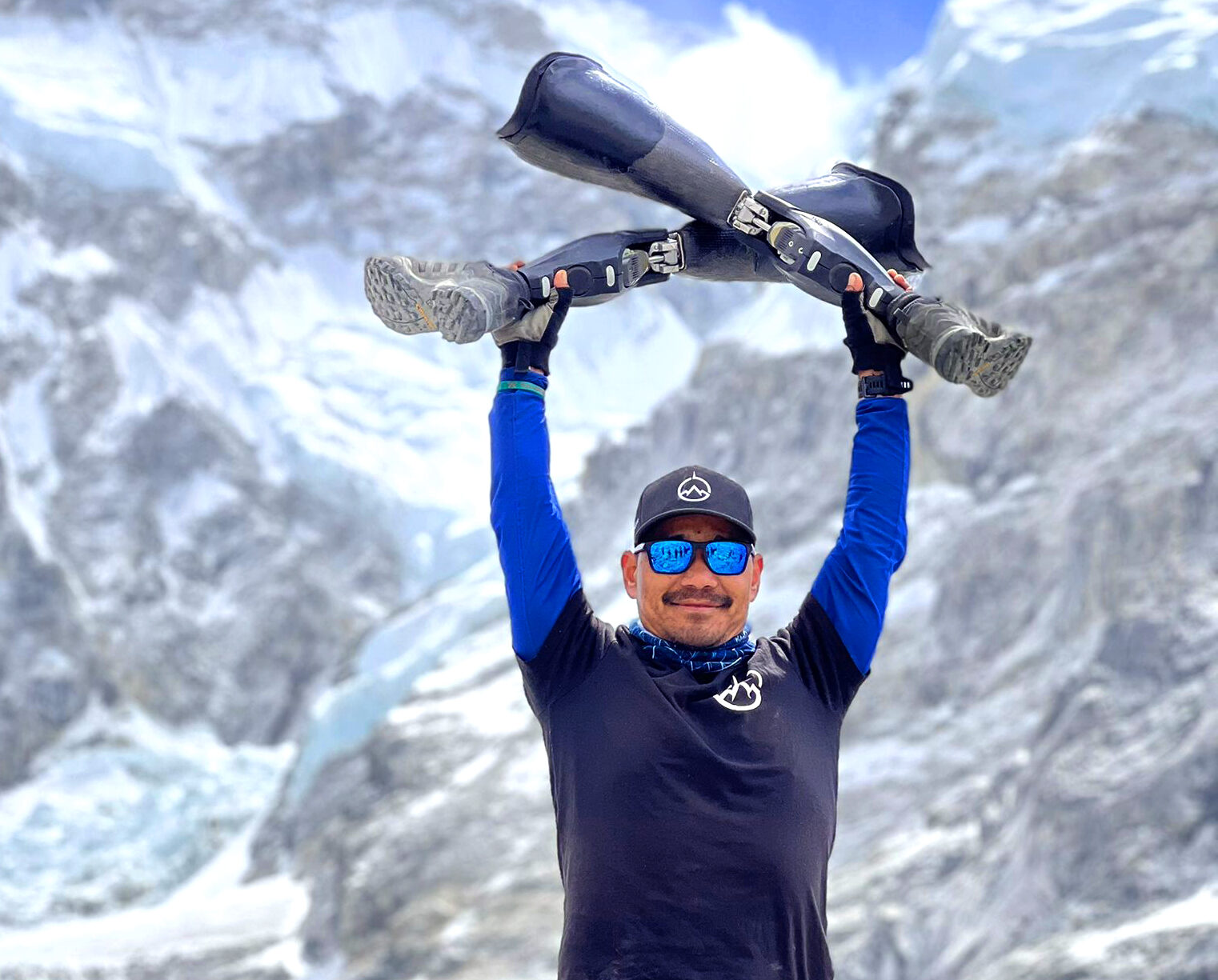Kathmandu – Hari Budha Magar, a Nepali mountaineer and former Gurkha soldier, is the first double above-knee amputee working to conquer the highest peaks on all seven continents.
Early Life
Hari was born into a farming family in the remote hills of Nepal. As part of their lifestyle, his family moved cattle every two months, and he was born in a cowshed during one of these seasonal migrations. He grew up surrounded by the towering peaks of Dhaulagiri and Sinse, often listening to captivating stories of mountaineers—especially of Sir Edmund Hillary and Tenzing Norgay, whom he could only imagine.
He walked barefoot to school and, at the age of 11, was forced into marriage, as was common in many rural communities at the time.

At 19, he joined the British Army’s Gurkha regiment, serving for 15 years. While on duty in Afghanistan in 2010, he stepped on an improvised explosive device (IED), which resulted in the loss of both his legs above the knee.
During his hospital stay, Hari battled despair and depression. He grew up in a society where disability was often viewed as punishment for sins in a previous life—a form of bad karma. Surrounded by this stigma, he felt hopeless.

However, over the course of 12 months, he learned to walk again using prosthetic legs. With unwavering determination, he resolved to challenge the limits society had placed on people like him.
Supported by organizations such as Combat Stress and the On Course Foundation, he began to rebuild his confidence through sports—golf, kayaking, and eventually climbing. His belief that disability should never limit human potential became the foundation of his mountaineering mission.
Landmark Achievements

Hari Budha Magar’s mountaineering achievements began in 2017, when he became the first double above-knee amputee to summit both Mera Peak (6,476m) and Chulu Far East (6,058m).
In 2019, he reached the summit of Mont Blanc (4,810m), one of Europe’s highest and most challenging climbs.
In 2022, he trekked to Everest Base Camp using Genium X3 prosthetic legs, a feat few in his condition have attempted.
In 2023, Budha made history by becoming the first double above-knee amputee to summit Mount Everest (8,849m)—the highest peak on Earth.

Continuing his remarkable journey, in 2024, he scaled Denali (6,190m), the tallest peak in North America. Most recently, he successfully summited Mount Aconcagua (6,961m) in Argentina, the highest mountain in South America.
This marks his fifth summit in the Seven Summit Challenge, bringing him closer to becoming the first double above-knee amputee to conquer the tallest peaks on all seven continents.
Mount Aconcagua is known for its extreme altitude, unpredictable weather, and treacherous terrain. For any climber, it is a demanding test—but for Budha Magar, it is yet another symbol of human resilience and strength.
Breaking Barriers
“Every mountain brings its own challenges, but for me, these are amplified with my disability,” Budha Magar shared on social media. “No mountain is easy. It was physically and mentally exhausting, as I climb three times slower than an able-bodied mountaineer. It was a test of patience, resilience, and determination.”
His expeditions are more than athletic accomplishments—they are powerful statements of hope and advocacy for inclusion. His mission is not only about climbing mountains but also about breaking barriers and changing perceptions.
In 2018, Budha Magar played a pivotal role in overturning a controversial ban that prohibited disabled climbers from scaling Mount Everest. The Supreme Court of Nepal later lifted the ban, enabling his historic ascent of Everest in 2023.
Today, he continues to inspire millions around the world—not just through his record-breaking climbs, but also through his work promoting awareness and raising funds for veterans’ charities.
A Message to the World
Budha Magar’s journey is a source of hope for the 1.3 billion people worldwide living with disabilities. Through determination, courage, and belief, he proves one powerful truth:
Disability does not mean inability.





